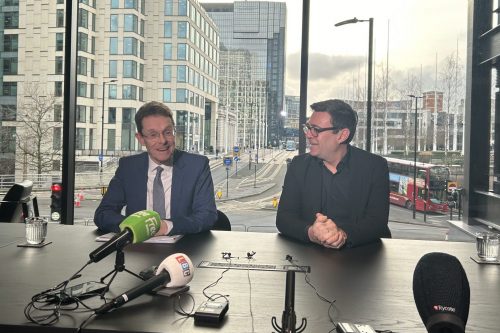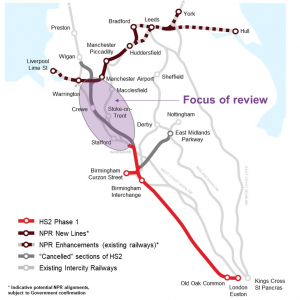Mayors unveil rail revival plans after scrap of HS2 line

The mayors of the West Midlands and Greater Manchester have unveiled options to improve transport connectivity between the two regions, following the scrap of the HS2 line.
Andy Street and Andy Burnham are working with former HS2 boss Sir David Higgins alongside a private sector consortium consisting of Arup, Arcadis, EY, Skanska, Dragados, Addleshaw Goddard and Mace.

Three options have been identified with Street saying they “believe there is substantial way forward” to alleviate a congested West Coast Mainline and boost connectivity.
The proposals are to either:
• Enhance the existing West Coast Main Line to “improve some of the most constrained parts”
• Build major bypasses to West Coast Mainline constraints, particularly between Crewe and Stockport as well as make upgrades to the existing line
• Construct a completely new and segregated line primarily for passengers that will free up space for freight on Mainline, but may not be built to the specification of HS2
Both Mayors said at a press event at Arup’s office in Birmingham, that talks with the Transport Secretary Mark Harper were “constructive” last week and a further discussion is planned in March just before phase one of their work is complete.
When asked if public finance would still be needed, Street said they’re working to find a “sweet spot where it can be done for considerably less than the cost of HS2. We can consider a blend of public finance and private finance” but said “none of the pieces have yet been worked out. That’s the next stage”.
Burnham said schemes around the world, such as the expansion of the TGV in France, were mainly privately funded.
He said: “Sceptical MPs really should look up some of what’s been done in other parts of the world where infrastructure has been delivered successfully in a less costly way than the original HS2 and where the private sector has played a considerable role in taking the risk off the public sector.
“This is not unrealistic or pie in the sky. There are plenty of examples.”
The cancellation of the HS2 leg to Manchester has resulted in the project being “very poor value for money” according to cross-party MPs.
Concerns were raised over how or if private investment will be attracted to fuel the planned London terminus at Euston.









